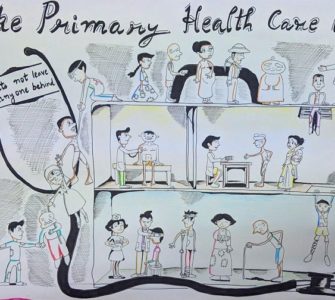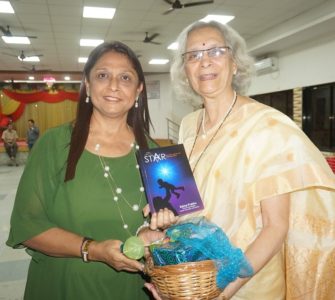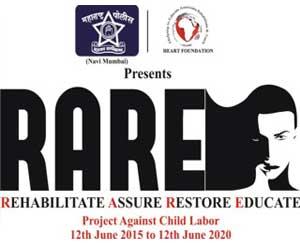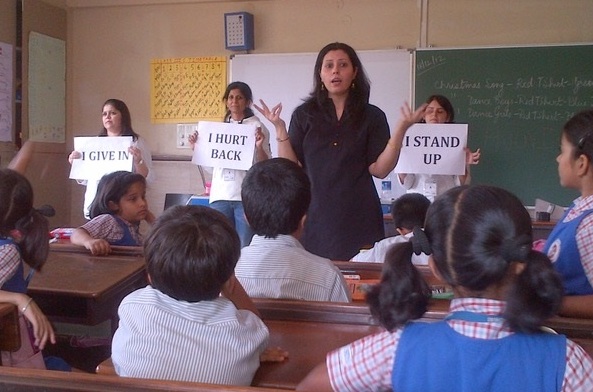
Hvovi Bhagwagar conducting anti-bullying campaign at Hiranandani Foundation School
By: Varda Sharma
As per a recent study by National Institute of Mental Health & Neuro Sciences (NIMHANS), 13.7% (approximately 17crore) Indians are in a need of active medical intervention and the number of trained mental health professionals is just 4000. Attrition rate among psychotherapists is high. Reasons: Fewer accolades due to confidential nature of work, ambiguous treatment outcomes, low earning potential and high stress work environment.
Hvovi Bhagwagar also realised the huge gap that existed in the country and decided to study psychology with an aim of becoming a therapist. She got enrolled in Masters in Clinical Psychology in SNDT Women’s University, Mumbai (1998). In the second year of her career, she became the Head of the Department of Psychology of a major NGO in India. However, her heart was less in organizational development and she quit after a year to pursue her dream of being a therapist. She worked part-time with Dr Reddy’s and alongside began a small private practice in 2004. In 2010 she launched her own clinic “Manashni” (meaning “good thoughts’ in Persian) in Powai, Mumbai with an aim to help people in need of mental health care.
“I barely had 12 regular clients in 2010,” says Hvovi. Today 8 years later, more than 700 clients have visited her centre for help.
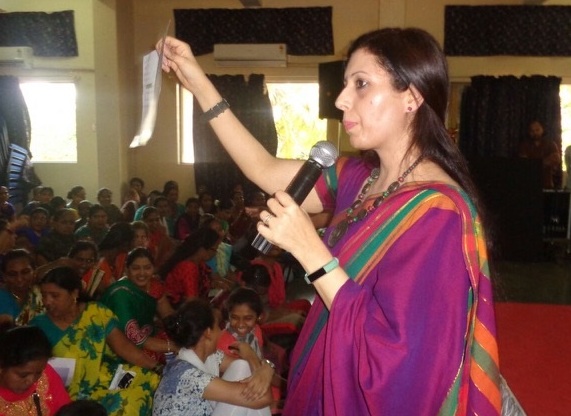
The journey, however, was not smooth. Stigma, people not taking help in early stages of mental illness, mistrust of therapists etc. are some of the challenges that she has been facing right from the beginning. “Also there is a lot of stress and burnout in this field and the resources available for psychologists to cope with stress in India are highly limited,” says Hvovi who is currently pursuing her Ph.D in “Secondary traumatic stress in Psychotherapists in India” from Tata Institute of Social Sciences, Mumbai. “I think I have lasted these many years only due to passion and taking timely help for myself to manage stress,” she adds.
Dealing with mental illness
Hvovi deals with cases of Borderline Personality Disorder extensively. “Such clients typically seek help because of relationship breakdown, suicide attempts and depressed mood. They also have self-harm and suicidal thoughts and anger outbursts,” says Hvovi adding that while such clients take patience and effort to work with as their intense emotions cause crisis almost daily, but “when they recover it is a fruitful experience.”
She also works with clients having anxiety disorders such as phobias, panic attacks, health anxiety and obsessive compulsive disorder. “Such clients usually need support from psychiatrists as well. A well-defined treatment plan that addresses their issues systematically typically leads to successful lessening of symptoms,” she informs.
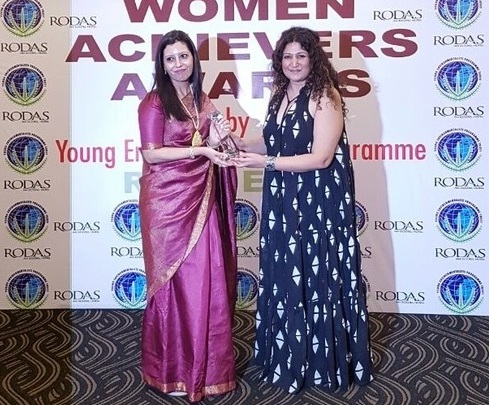
Ms. Hvovi receiving the ‘Women Achievers Award’ by Young Environmentalists Association
Developed over 18 years of experience of working with adults, children and teenagers having clinical disorders and adjustment issues, Hvovi’s therapy approach is essentially “to create a safe environment enabling the clients to share their deepest concerns” so that, with her help, they can embark on a journey that moves them away from frustration, depression, anxiety and hopelessness.
Helping people recover from traumatic past
Hvovi also works with people who have been through traumatic experiences (such as natural disasters, accidents, sexual assault, physical assault etc). “Such people usually develop post-traumatic stress disorder resulting in unexplained fear, jumpiness, angry mood and avoidance of daily life,” she says. Traumatic stress can also result from adverse early childhood experiences (caretaker neglect/abuse, illness of family members, family discord etc). Such experiences lead to a variety of adulthood problems such as depressive disorders, anxiety, personality disorders etc. “My approach is to use therapy specifically developed for Trauma which is EMDR (Eye movement Desensitisation and Reprocessing). EMDR is a therapy designed to work with traumatic memories, helping the person heal and recover from negative effects of the past,” she says.
She has worked on two sites of mass-scale disaster as a volunteer. Following the 2001 earthquake at Gujarat, she accompanied an EMDR team and visited several schools in the region working with over 16,000 children helping them to recover from psychological trauma. “We also presented scientific papers on including presentations at 2 International conferences and a Book Chapter,” says Hvovi.
In April 2015, she was again part of the EMDR India team that visited Srinagar to work with flood affected children in the valley. She presented a paper on the Srinagar project at an International conference in Shanghai, China in April 2017.
“I volunteer with NGOs that work with women who are victims of human trafficking as well as their offspring. I also volunteer with “Food Bank”, a branch of the Robin Hood Army that works to provide nutritious food to underprivileged children,” says Hvovi with a smile.
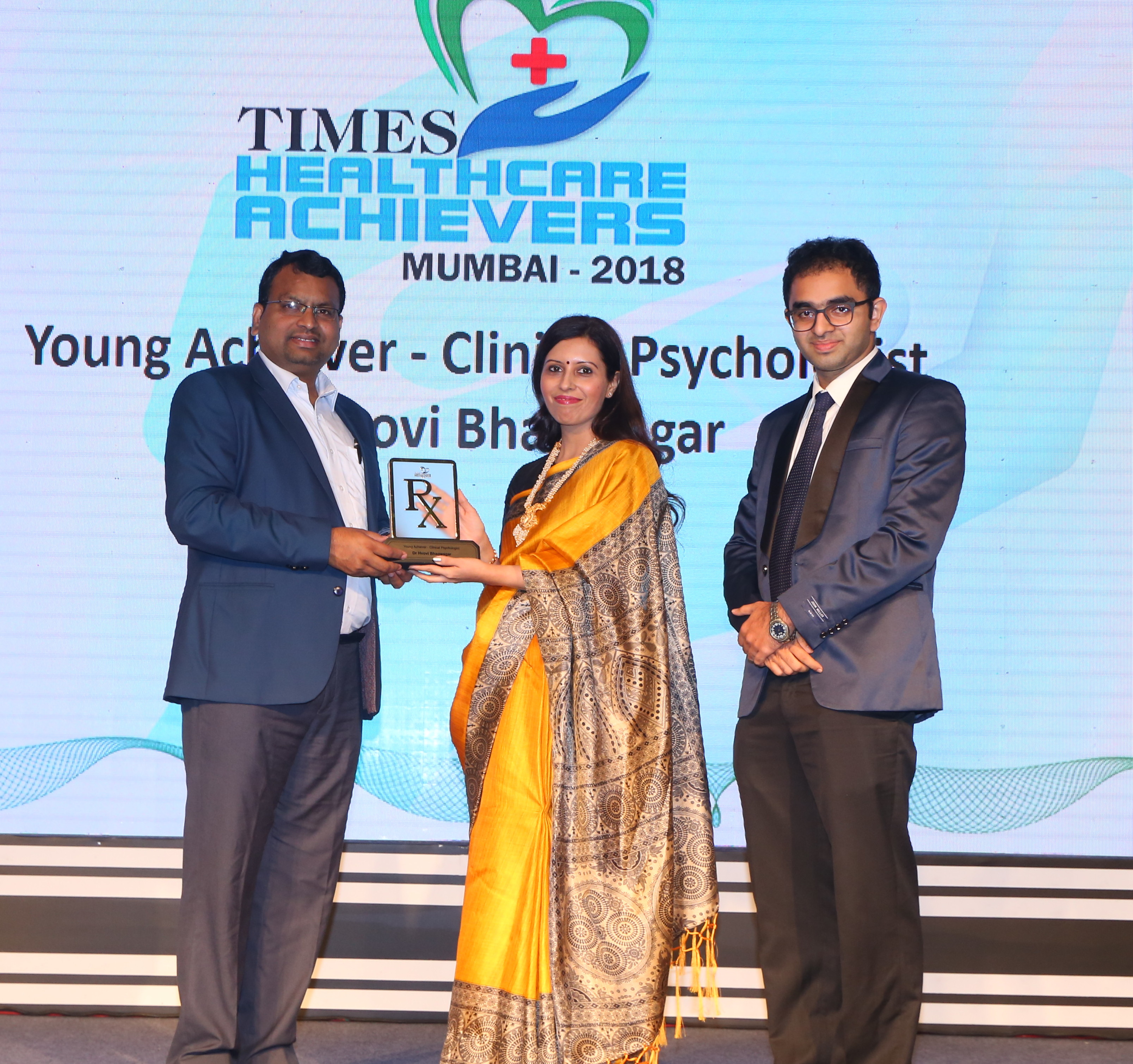
Times Health Care Achiever’s Award for being the Young Achiever
Hvovi has been trying to raise awareness on mental health through her articles on her blog as well as on various print media. An avid writer, her articles are being published from time to time in several National magazines and journals. She is also the recipient of Women’s Achiever Award by Young Environmentalists Foundation in 2017, and the recent Times Healthcare Young Achiever Award by Times of India, 2018.
Future plan
Presently a panel expert for Bipolar India, a peer support group for Bipolar Disorder and Depression patients in India, Hvovi’s aim is to initiate a similar support group for Borderline Personality Disorder (BPD). “Patients with BPD constitute a large portion of mental health population. Recovery process for this group requires the use of specialised treatments such as group therapy using Dialectical Behaviour Therapy (DBT),” says Hvovi who plans to pursue higher education and training in the USA for the same and bring to India Support groups for people diagnosed with BPD.
There is also a desire to initiate support groups and supervision to reduce stress and trauma for the mental health community in our country. “Healthcare professionals suffer a form of severe emotional stress called “Secondary traumatic Stress” (STS) owing to accounts of trauma that they hear from their patients. Research finds that organised supervision and support groups can be very helpful to reduce the overall stress of psychotherapists,” she says.
She has already initiated an online consult group for Indian practitioners in 2016 with a leading psycho-therapist from the USA. The group of 9 psychologists have virtual meetings once a month to receive case supervision for challenging clinical populations.
Says Hvovi, “The path to happiness is stable mental health and my dream is to spread as much awareness about mental illness as possible through my practice and articles.”
Manashni
Founder: Hvovi Bhagwagar
Founded: 2010
Location: Mumbai
website: www.manashni.com




